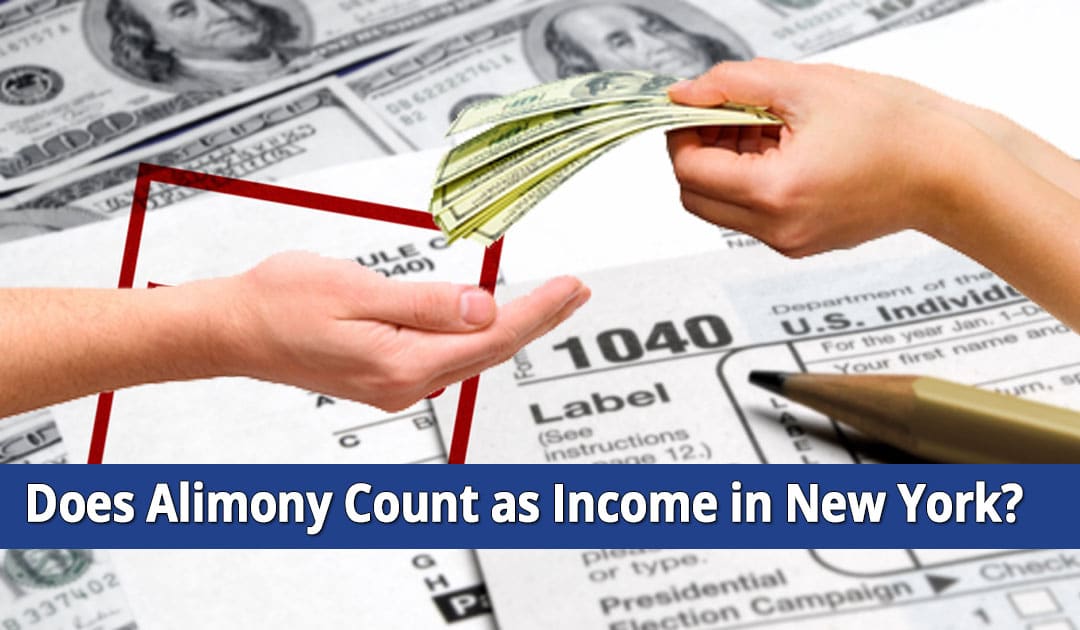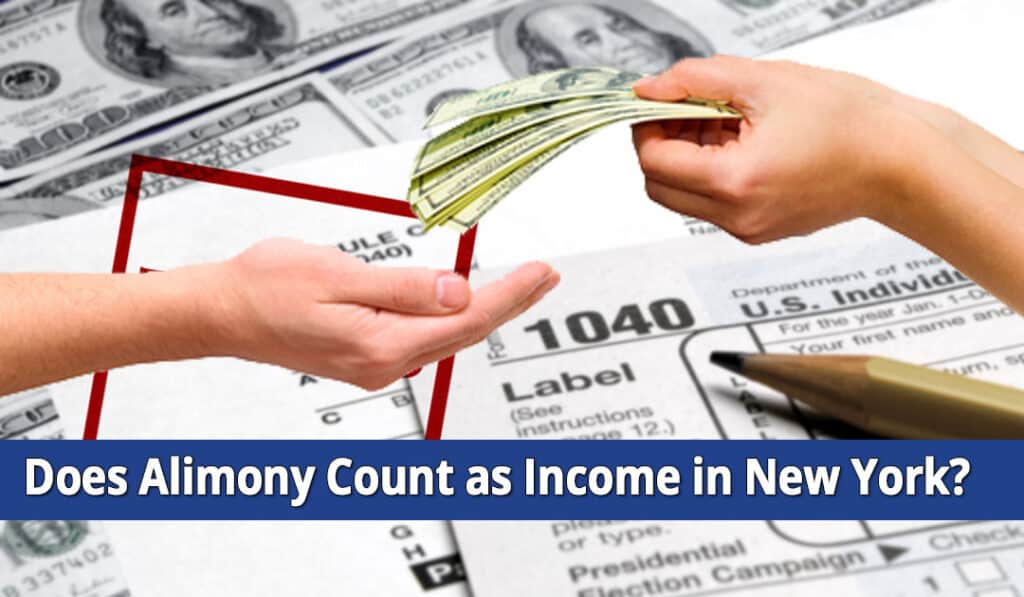Does Alimony Count as Income in New York?

Paying spousal support, also known as spousal maintenance or alimony, during and after a divorce in New York can be frustrating and can even put the payor in a financial bind if they are ordered to pay more than they feel they can afford. Being an alimony recipient can be necessary and highly beneficial as the lesser earner becomes independent after the divorce. Issues and confusion often arises at tax time. Payors want to know if they can deduct spousal support payments while recipients need to know if they should claim spousal support as income.
Here’s what to know about alimony and income in New York and how a qualified Long Island divorce lawyer can help you.
Alimony On Federal Taxes
The Federal Tax Cuts & Jobs Act of 2017, which took effect in January of 2019 changed the way alimony is taxed on a federal level. These changes ultimately ended a payor’s ability to deduct spousal support payments from their taxes. Recipients do not have to claim the money on their own tax returns, so it becomes like child support – taxed on neither side.
These guidelines are set to expire in 2025 and tax brackets will revert to what they were prior to the legislation being passed. If new requisites are not established before then, tax rates are anticipated to be much higher for both businesses and families in 2026 and beyond as a result.
The Biden administration recently proposed a bill called the Individual Top Marginal Income Tax Rate Increase that is intended to accelerate the return to greater tax brackets before 2025. It’s unclear whether this would impact alimony payments or if federal tax guidelines for spousal support will remain the same as with the 2017 legislation.
Alimony On New York State Taxes
It’s important to understand that the Federal Tax Cuts & Jobs Act only changed the way spousal support could be taxed federally. New York did not change the tax law and these are the guidelines that must be followed when filing your state taxes. Payors can still deduct alimony payments on their state tax returns and recipients must add the spousal support they received as income.
However, this can be confusing, especially when you’re doing it the opposite way on your federal taxes. It’s a good idea to work with a tax professional to make sure you’re filing correctly for both your federal and state taxes.
Alimony Modification In New York
If you are paying too much alimony or receiving too little, you may be able to have the amount modified by a judge if you can demonstrate a good reason to do so. For example, if your ex-spouse gets a promotion and begins making a lot more money, you can file a motion to take them back to court to have the alimony payments adjusted for the change.
Or, if you’re a payor and you lose your job, you can file a motion to have your payments paused or lowered. You must have these modifications approved by the court before you can change your payments. Do not just take it upon yourself to lower your spousal support payments due to an income change. If you have not had a formal modification order signed by a judge you will be penalized for not meeting your spousal support obligations.
Other Things to Keep in Mind About Spousal Maintenance in New York
Alimony and tax law can be difficult to understand. Here are some other things to keep in mind and how to get legal help:
- The higher-earning spouse will pay support. It doesn’t matter which gender either spouse is – whoever makes the most money will make a calculated payment to the lesser-earning spouse for a duration decided by a judge.
- There are two types of spousal maintenance. You may be awarded or ordered to pay pendente lite (temporary) alimony during the divorce or post-divorce maintenance.
- The longer the marriage, the longer spousal support will be awarded. For example, marriages that lasted between 15 and 30 years are typically awarded support that lasts 15% to 30% of the total length of the union.
- Temporary alimony is the most common type of spousal support in New York. “Permanent” alimony is rarely, if ever, awarded and usually only in cases where the lesser-earning spouse is disabled or cannot be expected to become independent.
How a Long Island, NY Divorce Attorney Can Help You
If you are paying or receiving spousal maintenance on Long Island – or you suspect you will be eligible to – it’s important to get swift legal assistance. If you are to be the payor, you do not want to pay more than necessary and if your will be the recipient, you want to ensure you receive all that you are entitled to. Contact Hornberger Verbitsky, P.C. now to book your consultation by calling 631-923-1910 or fill in the short form on this page.
GET YOUR FREE CONSULTATION TODAY
Call 631-923-1910 or fill in the form below
Horberger Verbitsky, P.C. partners Robert E. Hornberger, Esq. and Christine M. Verbitsky, Esq.
Get your complimentary consultation and case evaluation with our experienced attorneys today.
Your attorney will describe the many options available and determine together which is the right solution for you. By the end of this conversation, we’ll all understand how we can best help you to move forward.
No Cost or Obligation
There is no cost or obligation for this initial consultation. It is simply an opportunity for us to get to know each other, answer your questions and learn if Hornberger Verbitsky, P.C. is right the right law firm for you. Give us a call at 631-923-1910 or fill in the short form below for your free consultation and case evaluation.
All Fields Are Required
